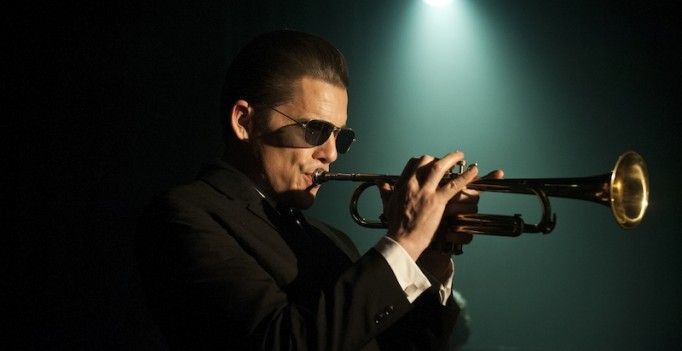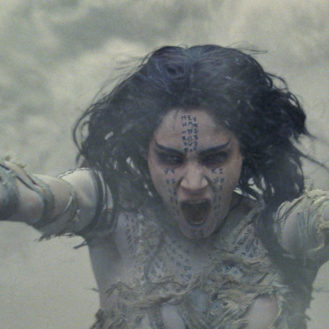Ethan Hawke (Before Sunrise, Boyhood) stars as east-coast jazz legend Chet Baker in Robert Budreau’s biographical drama Born to Be Blue, which focuses on the musician’s comeback during the 1960s and his struggle with addiction. The film, which was written, directed and produced by Budreau, chooses to examine a specific period of Baker’s career rather than the entirety of his career – a decision that results in a more intimate experience than one might expect from a film about a famous figure.
Everyone loves an underdog story, which is one of the reasons why it is so easy to connect with Baker during this particular point in his career. After spending time in an Italian prison, Chet Baker returns to the United States to appear in a film about his own life only to have the project tragically collapse. Hawke does a wonderful job of mimicking Baker’s unusual vocal style and Carmen Ejogo (Selma, Away We Go) delivers a strong performance as both his co-star, Jane, and ex-wife, Elaine.
There is no denying that Born to Be Blue is an aesthetically impressive film. Whether it’s a majestic image of Baker playing his trumpet on the cliffs of the California coast or the black-and-white flashbacks, each shot is meticulously constructed. While the symbolism of the visuals is sometimes obvious, it is always beautiful and ultimately effective. Budreau has a keen eye for light, colour, and movement.
Unfortunately, the dialogue isn’t nearly as subtle or nuanced. Ejogo’s character, in particular, is burdened with lines that are too predictable and obvious to feel natural. When she and Baker discuss his heroin addiction, their directness of their exchange robs the audience of an opportunity to read between the lines of their communication and uncover layers of possible meaning. Right away, the stakes are high and everyone’s cards are on the table too soon.
Born to Be Blue’s tight focus, original narrative structure, and gorgeously moody camerawork are certainly adequate compensation for the film’s minor flaws. Additionally, Hawke and Ejogo bring more than enough energy and tenderness to their rolls to make up for the boring monologues and awkwardly on-the-nose verbal interactions. Jazz aficionados won’t be disappointed by the level of respect and admiration that Budreau clearly has for Baker and his music.
**********
Do You Tweet? Follow These Tweeple:
Shannon Page: @ShannonEvePage





Leave a comment